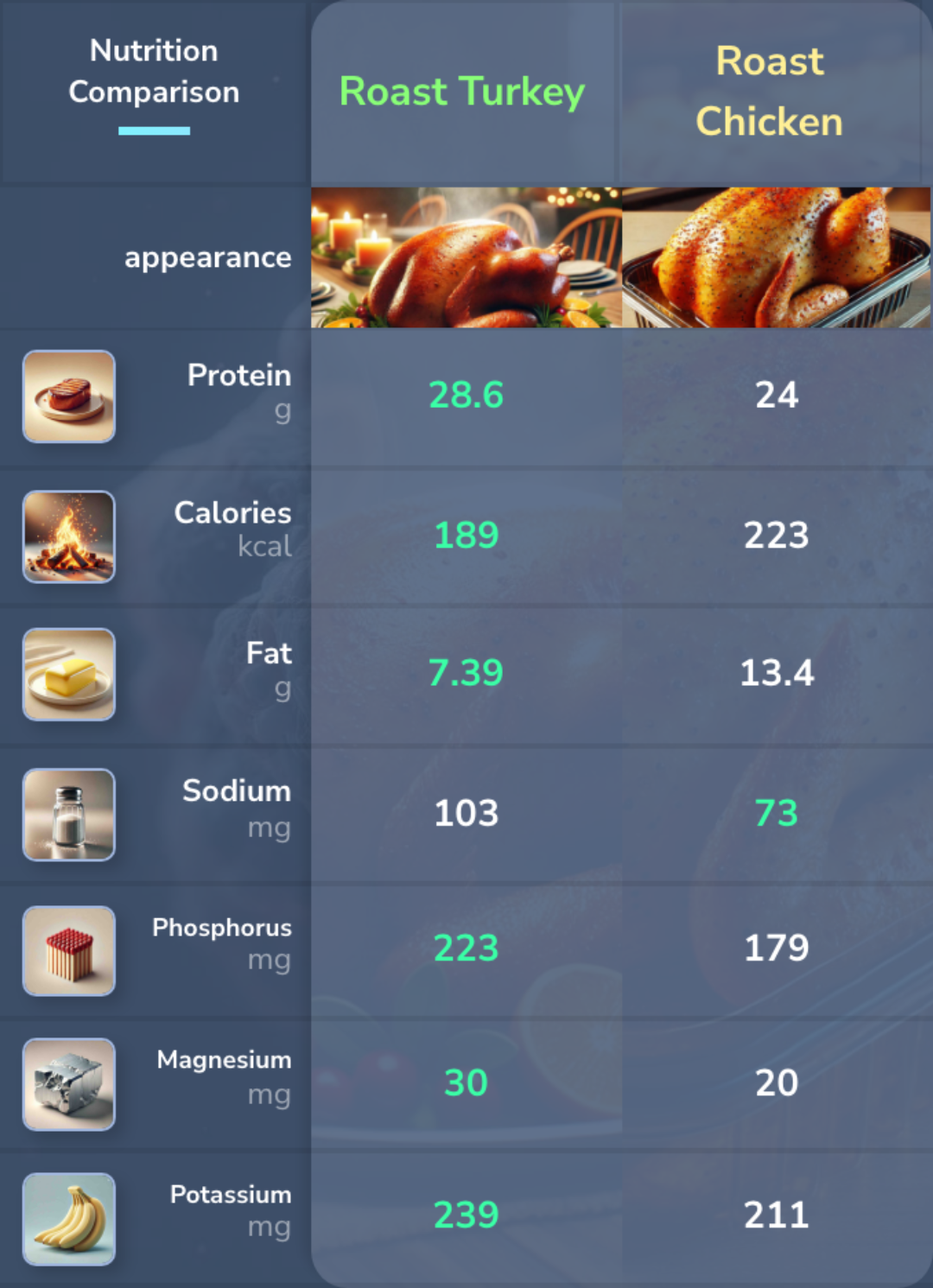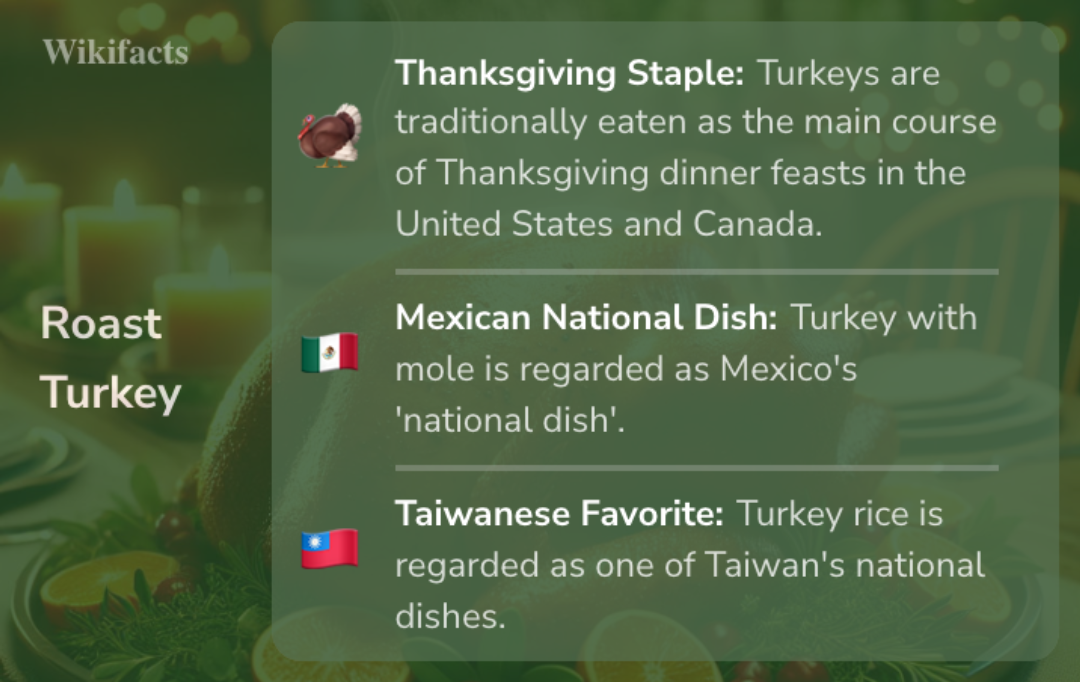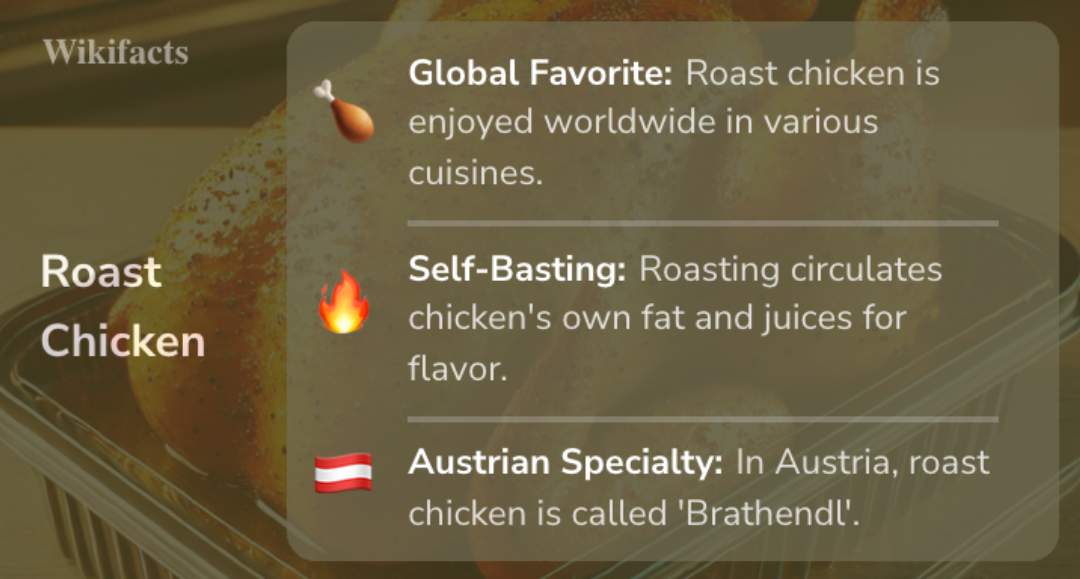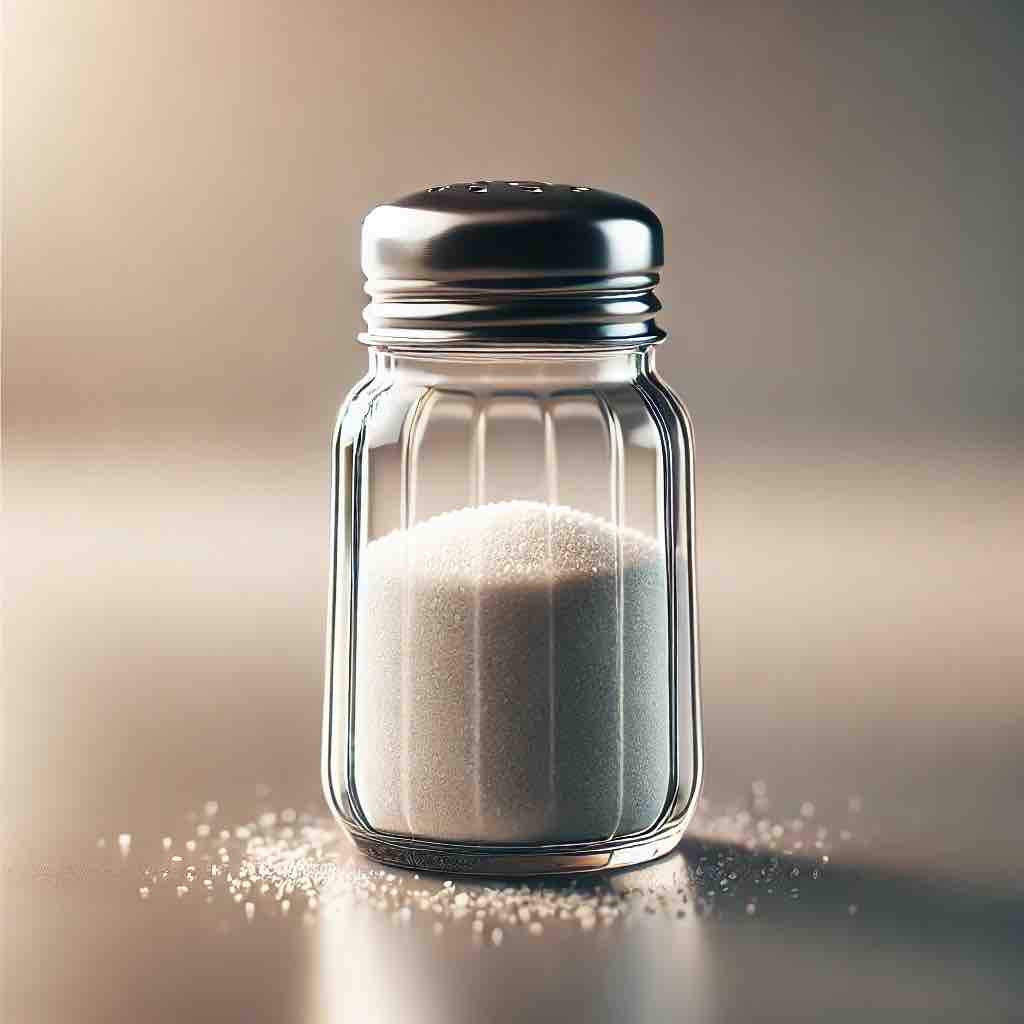Holiday Nutrition
Nutrition Comparisons
Roast Turkey vs. Roast Chicken
Roast Turkey offers more protein, magnesium, phosphorus, and zinc, while being lower in calories and fats compared to Roast Chicken. Roast Chicken has less sodium. Both lack Vitamin C. These differences may guide choices based on nutritional priorities such as protein, calorie content, or sodium levels.

Background:Roast Turkey

top benefits 👍
💪
High Protein Content:Turkey breast provides 25% protein per 100g serving.
🧠
Rich in Vitamin B6:Turkey meat is notably richer in vitamin B6 compared to chicken.
🦴
Good Source of Phosphorus:Turkey supplies high amounts of phosphorus, essential for bone health.
drawbacks 👎
🧂
Potential Sodium Content:Processed turkey products can be high in sodium, which may impact blood pressure.
Background:Roast Chicken

top benefits 👍
💪
High-Quality Protein:Both turkey and chicken are rich in high-quality protein.
🍖
Nutrient-Rich Meat:Turkey provides more B vitamins and minerals than chicken.
🍗
Lower Fat Content:Turkey breast has slightly less fat than chicken breast.
drawbacks 👎
⚖️
Caloric Differences:Chicken contains more calories per serving than turkey.

Protein
Roast Turkey contains 28.6 g of protein per serving, which is higher than Roast Chicken's 24 g. This makes Roast Turkey a better choice for individuals looking to increase their protein intake.

Calories
Roast Turkey has 189 kcal per serving, which is lower than Roast Chicken's 223 kcal. This makes Roast Turkey a lower-calorie option, which could be beneficial for those monitoring calorie intake.

Fats
Roast Turkey has 7.39 g of total fats per serving compared to Roast Chicken's 13.4 g. This makes Roast Turkey a leaner choice.

Sodium
Roast Chicken has 73 mg of sodium per serving, which is lower than Roast Turkey's 103 mg. Lower sodium content can be beneficial for maintaining heart health.